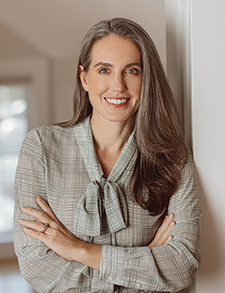 Just prior to the Triological Society’s Section Meetings held in January in West Palm Beach, I was asked to be on a panel by a friend who was unable to attend. I said “yes” before even asking the topic. My unthinking response was driven by a desire to help a friend and knowing that flexibility and a willingness to step up is usually appreciated. I just didn’t even consider saying “no.”
Just prior to the Triological Society’s Section Meetings held in January in West Palm Beach, I was asked to be on a panel by a friend who was unable to attend. I said “yes” before even asking the topic. My unthinking response was driven by a desire to help a friend and knowing that flexibility and a willingness to step up is usually appreciated. I just didn’t even consider saying “no.”
Explore This Issue
March 2024Much to my chagrin, however, I then learned that the topic of the panel was, “Just Say No—But How?” I had just agreed to speak about saying “no” after having just said a shaky “yes.”
Preparing for the panel made me reflect on when and why I say both “no” and “yes,” as well as how what we say “yes” to changes over our career and life circumstances. Next month, I’ll write about my evolution from saying “yes” to almost everything to determining when to say “no” and why. This month, I want to start with how to get involved, which requires saying “yes”—a lot.
Meetings: Early in my career, a faculty member told me to make the most of going to meetings. Don’t sit in the back, she told me; sit in the front and ask questions. Transitioning to the front row took some adjustment, but it was some of the best advice I ever received. So often after asking a speaker a question, they would ask me to get coffee to extend the conversation. These conversations not only imparted knowledge but, over time, developed into friendships. The coffee break conversations often led to being introduced to others, allowing me to grow my network with a group of individuals I could reach out to with questions anytime.
Research: The other helpful advice I received as junior faculty was to start collecting data and writing early in my career. Writing a review article early on signals to journal editors and conference organizers the topics you’re interested in discussing. Reviews early in your career also give you a deep knowledge of the literature and help you design studies and better care for your patients. Collecting data teaches you about treatment results and provides the data needed for peer-reviewed journal publications and meeting abstract submissions.
Peer Review: When you’re asked to review an article, do a thorough job. Not only do the authors deserve a thoughtful review, but it also demonstrates your interest and expertise. Performing timely and well-executed reviews often leads to other opportunities, such as editorial board membership or being an associate editor.
Committee Meetings: This may vary a bit depending on the organization, but most committee meetings are open to nonmembers. Going to a committee meeting in an area of interest is a great way to meet others with common interests. Showing up will often lead to committee membership, panel and publication opportunities, and even leadership roles.
Spending the effort to get involved has greatly enriched my professional life. I hope it can do the same for you.
—Robin